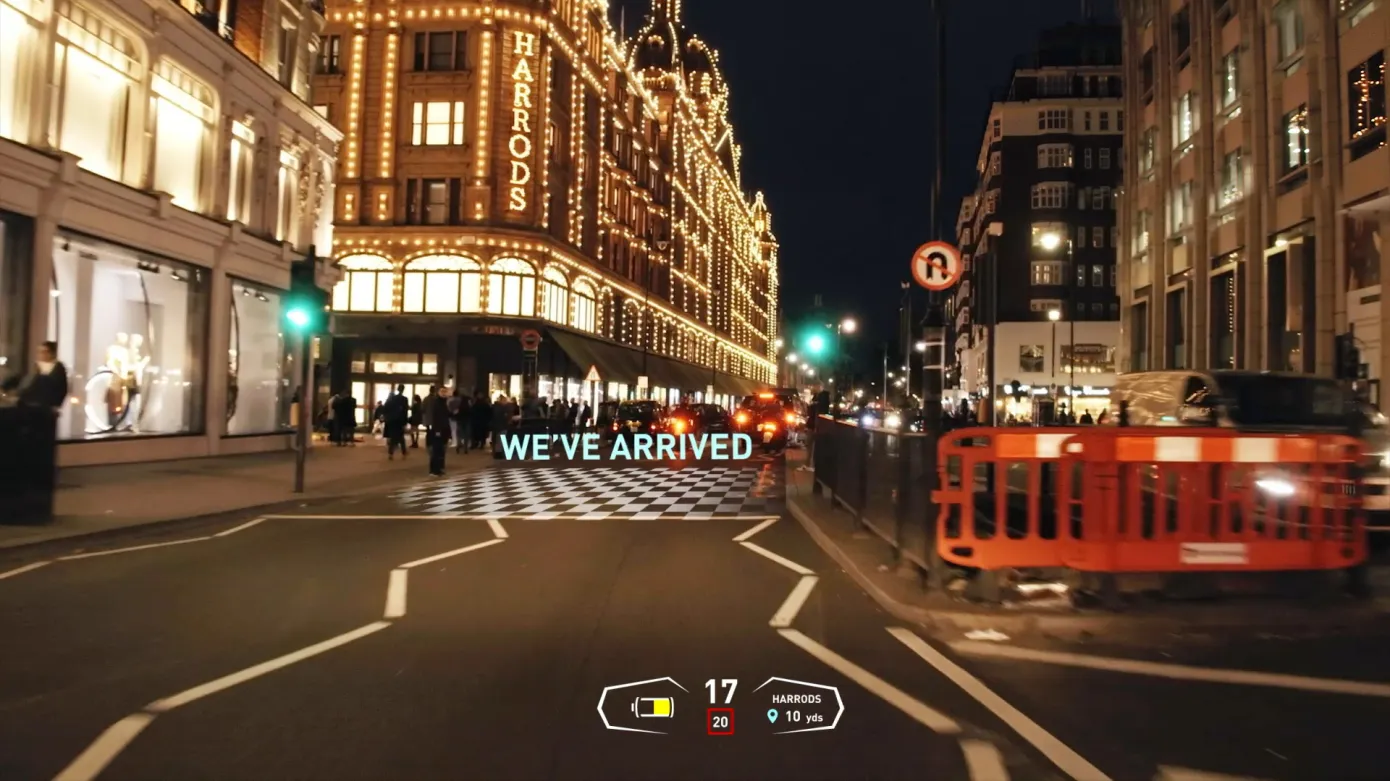Envisics secures $50M at a $500M valuation for its in-car holographic tech
The automotive industry is showing signs of recovery as the COVID-19 pandemic’s economic impact continues to wane. Car manufacturers aiming to boost sales in the next five years are exploring new features that might give them an edge. Envisics, a UK-based startup that creates holographic in-car technology, allowing for the projection of safety alerts, navigation, and other data on the windshield, is announcing a $50 million investment to be part of this conversation.

Envisics plans to use the funds for two purposes: firstly, to work on its holographic technology with current clients such as GM, and secondly, to develop the next generation of the platform. The CEO, Dr. Jamieson Christmas, stated that this new technology will be smaller and more affordable, making integrating into cars of all sizes and price ranges possible. Furthermore, it will have enhanced video capabilities, providing 3D volumetric experiences that resemble those in Star Wars.
Envisics, a Milton Keynes-based company, has secured over $50 million in funding from strategic backers, including Hyundai Mobis, InMotion Ventures, and Stellantis. Envisics is currently in talks with other investors to raise more. This latest funding has driven up Envisics’ valuation to $500 million, double its 2020 valuation of $250 million. Envisics has established a strong position among auto manufacturers and is working with several companies, including Jaguar Land Rover and GM, which confirmed that its Lyriq electric Cadillacs will integrate Envisics’ second-generation displays. Envisics’ Series C funding is part of its mission to continue developing innovative technology for the automotive industry.
Despite its potential, the startup is currently facing significant challenges in the market. Automotive technology companies have struggled to gain traction, with notable examples including the shutdown of Argo AI and promising startups like Broadmann17. Even established players like Cruise are facing intense scrutiny. Additionally, the augmented reality technology market, including the HUD market, has not seen any significant success. These obstacles must be overcome if the startup hopes to succeed in these competitive industries.
The automotive and technology industries face challenges in the current economic climate. Consumers may be less willing to pay extra for features like augmented reality displays in new vehicles. However, some positive developments exist, such as the timely progress of GM’s deal with Envisics. Envisics plans to release its first commercial products, including HUDs, this year. The luxury vehicle Lyric is just the beginning, as Envisics has signed deals with Panasonic Automotive Systems for future rollouts across a broader range of models and prices.
According to Christmas, the focus for what appears on the HUDs is currently on essential information that the driver needs to know for safety, vehicle status, and navigation alerts. Information such as alerts for new music albums or podcasts on Spotify is not considered a priority. The main goal is to optimize the safest and best experience for drivers.
Car manufacturers have realized that large vehicle screens can be too distracting for drivers and are often unnecessary. This has caused a decline in their popularity, as Christmas pointed out. The same goes for HUDs and the amount of space they occupy on the windshield. Car companies need help with how much real estate is appropriate for interactive, connected experiences for drivers. The company is working hard to qualify the technology. AR HUD currently accounts for only 1.6 million units in 2022 but is expected to grow to 19.1 million by 2032.
Envisics has gained strategic backers who view investing in the company as a means of obtaining early access to its technology for future deployment. Hyundai Mobis, for example, has expressed satisfaction with its long-standing partnership with Envisics and looks forward to jointly developing AR-HUDs to enhance in-car experiences. Younghoon Han, VP and head of electronic control and convenience at Hyundai Mobis has stated that the company expects to provide next-generation AR-HUDs with cutting-edge holographic technology to global automakers. Strengthening its partnership with Envisics will enable Hyundai Mobis to deliver an intuitive, safe, and convenient HMI to drivers worldwide.